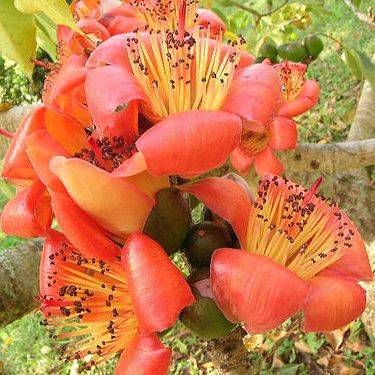
20 Bombax ceiba Seeds, Red Cotton Tree, Silk Cotton Tree, Indian Kapok - Deciduous Bulk Tree Seeds
Check my rate
| Main centres: | 1-3 business days |
| Regional areas: | 3-4 business days |
| Remote areas: | 3-5 business days |

| Main centres: | 1-3 business days |
| Regional areas: | 3-4 business days |
| Remote areas: | 3-5 business days |
Common Names: Red Cotton Tree, Silk Cotton Tree, Indian Kapok
You're buying a pack of 20 Seeds We'll supply you with all the germination & care instructions. |